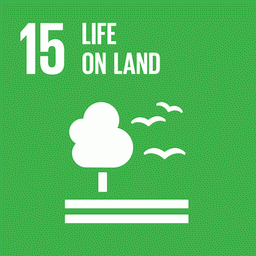Several scientific studies have proved the importance of indigenous communities for the conservation of forests, including the Amazon. According to MapBiomas, between 1985 and 2020, indigenous territories already demarcated or awaiting demarcation were the ones that most preserved their original characteristics. This is largely due to the way of life and culture of the indigenous people.
However, even after so many years of invasion of their territories and as the world faces climate change, there is still a long way to go so that their cultures are understood and respected. This was what the artist and educator Denilson Baniwa and the communicator Alana Manchineri shared during the event that opened the third cycle of Amazoniar on Thursday (09/09), under the theme Breaking stereotypes about indigenous peoples.
“It is wonderful that there are many ongoing discussions about the Amazon, but we need to go further. Just as our bodies and existences are interconnected, so are the different biomes. A polluted river in the Amazon can affect São Paulo, for example. We take care of the Amazon thinking about the collective good. We all live on the same planet and it is the only one we have,” said Baniwa, highlighting that preserving the biome is key to everyone’s future globally.
Collectivity is one of the essential elements of indigenous culture. “We are a collective being, not just an individual being. There are times when we need to travel and spend several days away from home to contribute to the mobilization and defense of our communities”, explained Manchineri, who is coordinator of the young communicators of the Coordination of Indigenous Organizations of the Brazilian Amazon (COIAB). She connected to the debate from Brasília, where she has been since August 22nd to participate in the national mobilization of indigenous people in the Acampamento Luta Pela Vida and the Indigenous Women’s March, protesting against the “time frame” thesis. The judgment was suspended by the Supreme Federal Court on September 15th, after four weeks of discussions.
Watch the video recording of the event:
Adapt to other cultures in order to survive
For Baniwa, indigenous peoples are the ones who most seek to understand other cultures, which is largely related to a matter of survival.
“In a conversation about work, someone told me ‘you speak Portuguese so well that you don’t even sound indigenous’, thinking it would be a compliment. I have heard this a lot since I left Rio Negro. I cannot understand how one is more interested in the way I speak and cares less about what I think and am in a broader context”, he said. “If I speak this language well today, it is because my people and so many others were forced to learn the technologies and knowledge of other non-indigenous peoples in order to survive. If I did not speak Portuguese, perhaps I would not be alive today”, he pointed out.
Manchineri also shared a story she experienced in a school in Rio Branco, located in an area where there are many indigenous communities. She carried out a research project for a year for her university, contributing to breaking some stereotypes. “The first question I asked when we arrived was whether there were indigenous people there. It was clear that some students were born in indigenous families, but at that time, no one identified themselves as such and we saw other children making fun of this”, she mentioned. “We spent the whole year talking about indigenous culture, we trained teachers and students. At the end of that year, I repeated my question and we noted that many identified themselves as indigenous and the other children started to respect them.”
According to Manchineri, a positive point of the project was the opportunity to show children that indigenous people occupy the academic space. “When I started studying at the university, I came across a different universe, in which many people think that we do not deserve to be in the academy. That space was not created for us”, she explained. In addition, the project allowed the students to better understand the way of life in these communities. “Many were impressed to understand that life in urban cities and in our communities are completely different. We managed to debunk the absurd myths that indigenous peoples are lazy and that being far from the territory does not make one less indigenous”, she concluded.
Join the next events of Amazoniar
Amazoniar is an initiative by IPAM to promote a global dialogue on the Amazon forest and how it influences the relations between Brazil and the world. Register now for the next events:
Sep 23rd at 10 am (Brasília) – Listen to this story: The wealth of indigenous literature and legends
Oct 7th at 10 am (Brasília) – Indigenous voices: Traditional and current songs and how they mix
Oct 21st at 10 am (Brasília) – Indigenous perspective: Traditional peoples through the lens of photography and audiovisual
Photo contest Amazoniar
As part of the third cycle of Amazoniar, IPAM launched a photo contest under the theme “Amazon for the Planet”. It is open to all, regardless of age and nationality, and it aims to encourage the record of realities in the Amazon, as well as the cultural and artistic production in the region.
A panel of judges will select 20 photographs in total. The winners will have their photos exhibited, in digital format or via projection, in Glasgow, Scotland, during the Conference of the Parties (COP 26) of the UN Framework Convention on Climate Change, and at the Museu do Amanhã, in Rio de Janeiro, next to an exhibition scheduled to open at the end of the year. Check out the rules and take part!
To receive news about Amazoniar, sign up for our newsletter.
